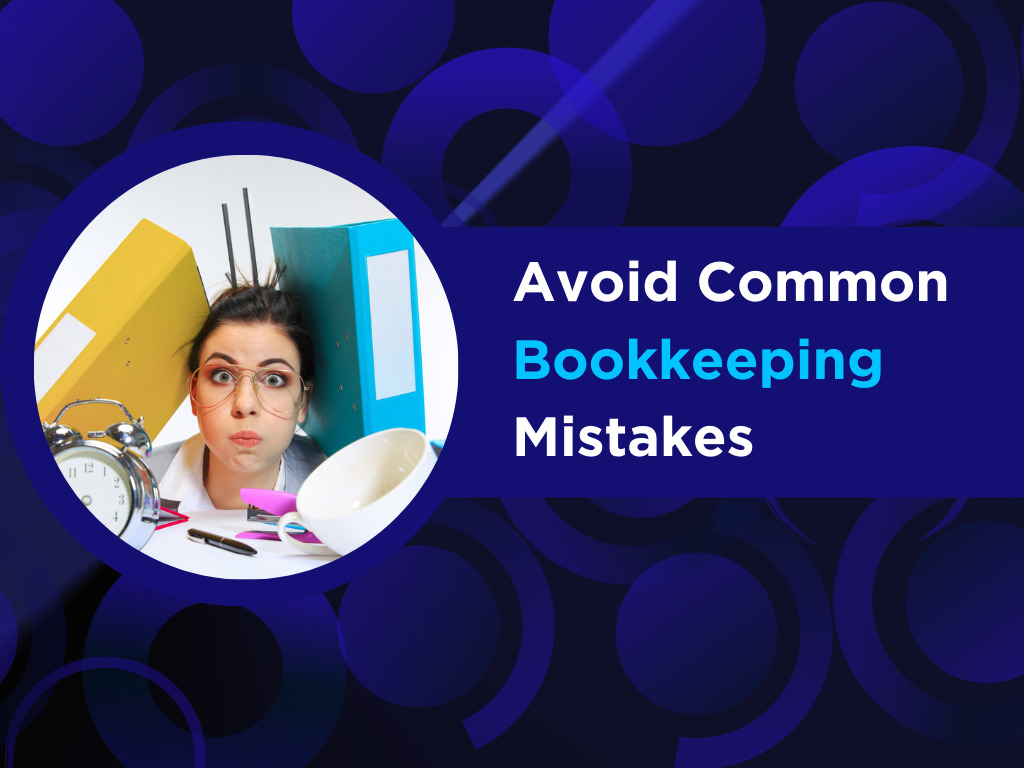
Are you worried about the messed books? It happens with almost every entrepreneur. They mess up their bookkeeping and are lazy in rectifying the errors and updating it on time. But no worries bookkeeping errors can be fixed. As mundane as it may appear, bookkeeping is your biggest secret weapon regarding business management and growth.
Only with accurate and consistent measurement of a company’s financials and other vital indicators can we as business owners effectively manage and expand our businesses. Here in this blog, we will discuss common bookkeeping mistakes every company and small business makes. Before that, we will understand what bookkeeping is.
What is bookkeeping
Bookkeeping involves recording and organising all the business transactions that have occurred during a business. It is an integral part of accounting and focuses on the day-to-day financial transactions of the business. Bookkeeping is essential for two main reasons: it helps to understand what has been happening in the business. Also, helps to create reports such as income statements, balance sheets, and others required by law.
It is the art of maintaining financial records. The books of the account consist of sales revenue, payment for buying things and services, issuing loans and investments, recording wages, payroll, etc.
It is vital for any business that helps to maintain accurate financial records and lets you see if the business is making a profit or loss. How bookkeeping is managed determines the accuracy of the overall accounting process the business is following. Thus, bookkeeping ensures that the record of financial transactions is up-to-date and, more importantly, accurate.
Common bookkeeping mistakes you need to avoid
Improper or poor record-keeping
Lack of proper receipt and record-keeping is a common business problem. It is easy to lose receipts or forget about those small expenses that seem insignificant. Maintaining accurate records monthly and with a proper filing system can save time and money on your income taxes. It can also provide necessary documentation in the event of an HMRC audit. In the case of an audit, accurate records of income and expenses could end up saving thousands of tax pounds.
Improperly categorizing expenses
Poor record-keeping means incorrectly categorizing the expenses, resulting in late financial reporting, underreporting of expenditures and taxes, or overstating income and profits. But accurate tracking of income and expenses incorrect categories will increase the profit. When your bookkeeping is not correct, the results can be costly. It happens only when you hire an inexperienced bookkeeper.
Not reconciling a bank account
It is essential to separate your business and personal funds. It will help you avoid problems if the HRMC audit your business. Ensure that your bank statements are reconciled monthly to maintain your business accounts properly.
Bad petty cash management
If you are running a business and wish to have a clear overview of your cash flow. Then set up a system that gives a clear picture of where your cash is being spent, what profit you are making, and what it is being used for. Buy a petty cash lock box and keep the receipt for all disbursements; otherwise, managing your business’s finances would be challenging.
Not classifying employees correctly
Businesses often have employees and independent contractors. It is essential for them to keep track of wages and pay them the correct amount. Also, it would be best to determine that your business doesn’t overpay the HMRC by filing too early. If applicable, you should also correctly classify employees as independent contractors or non-employees.
Not saving receipts for small amounts
It is necessary to keep the receipts, it may require as a proof during your business audit. Throwing away the receipts will put you in trouble. You won’t be able to back up the deductions you made on your tax return during an audit. There are several ways to store the receipt, take a picture on your phone and keep them in cloud storage or accounting software or any receipt processing software.
Neglecting VAT
A good practicing accountants will explain your responsibilities before starting your business. They will help you understand your VAT obligations, how to collect it correctly, know your VAT filing deadlines, and file your VAT on or before the deadline.
Conclusion:
Bookkeeping is the tedious and mundane task of keeping track of all financial information related to transactions that took place in the past, within the current period, and the amount collected from customers. Bookkeeping analyses an organisation’s financial health and performance.
Also read our previous blog story:-

